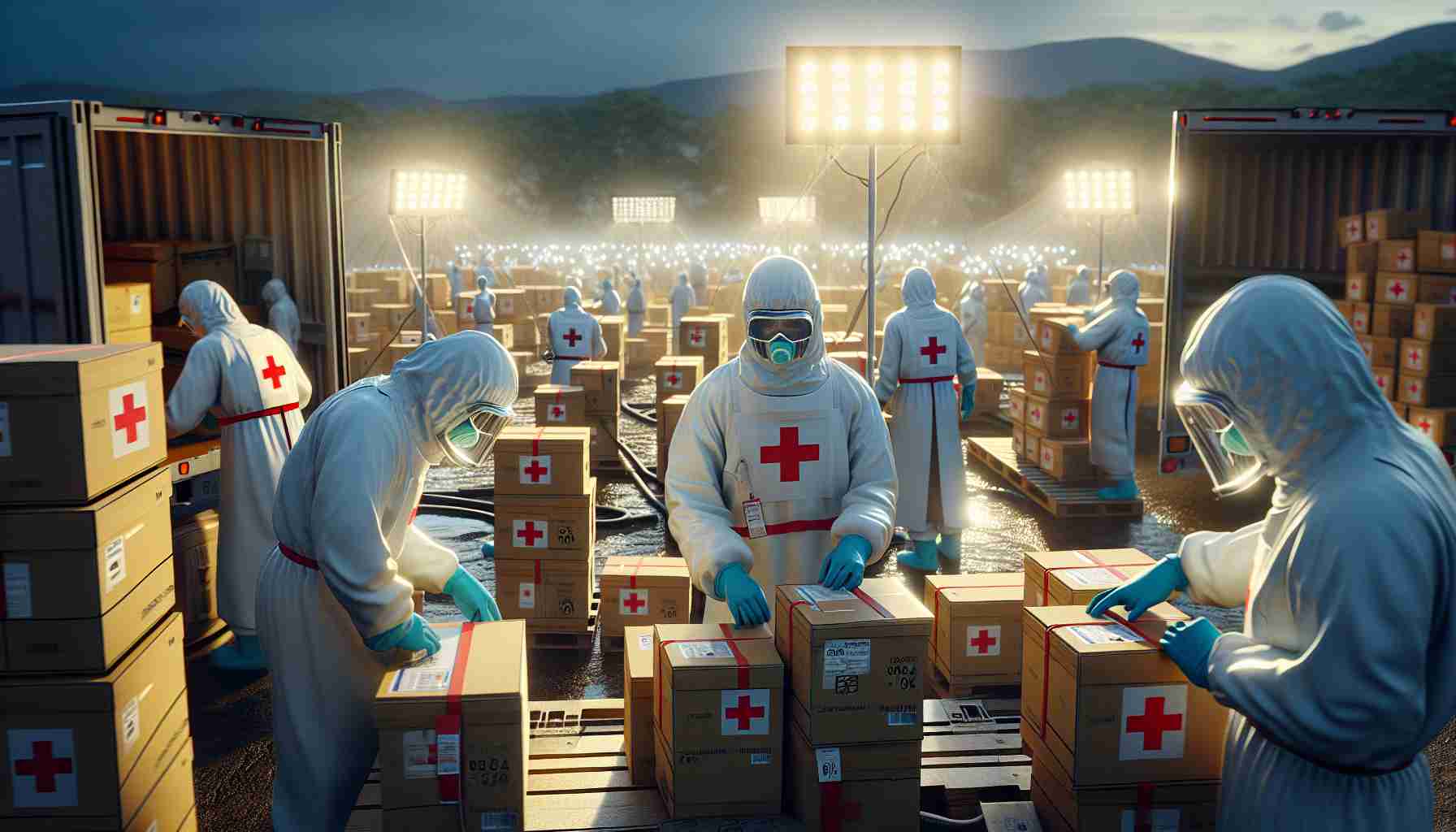- A new case of Ebola in Uganda has heightened the urgency for a collaborative response.
- Russia has deployed a mobile laboratory to improve on-site testing capabilities.
- Russian experts are actively working alongside Ugandan health officials to enhance the response to the outbreak.
- Training is a crucial component of the collaboration, focusing on safe management of hazardous pathogens.
- International cooperation is vital in combating infectious diseases effectively.
In a dramatic turn of events, the relentless battle against Ebola in Africa ignites new hope as Russia steps up its fight alongside Uganda. Following the alarming identification of a new Ebola case on January 30th—a healthcare worker who tested positive—the urgency for action skyrockets. With the majority of contacts being hospital staff, the need for immediate intervention couldn’t be clearer.
To tackle this escalating crisis, the Russian health agency Rospotrebnadzor swiftly deploys a state-of-the-art mobile laboratory to the impacted region. This cutting-edge facility enables on-the-spot testing, dramatically speeding up the identification of potential cases. But the support doesn’t stop there; Russian experts aren’t just offering equipment—they are on the ground, collaborating closely with Ugandan health officials to fortify their response.
The heart of this partnership lies in training. Russian specialists are dedicated to imparting their valuable expertise on operating the mobile medical unit. Within the critical framework of biological safety, they meticulously guide Ugandan counterparts on managing hazardous pathogens like Ebola. Enhanced safety protocols mean greater protection for healthcare workers and the community, boosting their ability to control this lethal virus.
This high-stakes collaboration showcases not just international solidarity, but a shared commitment to safeguard lives against a formidable foe. The key takeaway? In the fight against infectious diseases, timely support and education can make all the difference.
Russia’s Bold New Strategy in the Fight Against Ebola: A Collaborative Approach in Uganda
The Ongoing Struggle Against Ebola in Uganda
As of January 2023, the alarming resurgence of Ebola in Uganda demands an urgent and multifaceted response. Recent developments showcase how international cooperation is evolving to combat this lethal virus, particularly with Russia’s proactive involvement alongside local Ugandan health authorities.
Innovations in Response to Ebola
1. Mobile Laboratory Deployment: The swift installation of a state-of-the-art mobile laboratory by Russia’s Rospotrebnadzor dramatically enhances the response capabilities in affected areas. This facility allows for rapid testing and identification of Ebola cases, minimizing the delay that often exacerbates outbreaks.
2. Training Programs for Healthcare Workers: Russian experts engage in comprehensive training sessions with Ugandan healthcare workers. By imparting critical knowledge on biological safety protocols and hazardous pathogen management, they are fortifying local capabilities to handle outbreaks effectively.
3. Enhanced Safety Protocols: The collaboration emphasizes strict adherence to enhanced safety measures. Accident prevention and meticulous care standards in handling Ebola cases are crucial components in protecting not just healthcare workers but also the wider community.
Pros and Cons of International Aid in Ebola Outbreaks
– Pros:
– Rapid Response: Mobile labs facilitate immediate testing and can significantly cut the response time during outbreaks.
– Knowledge Transfer: Local healthcare workers gain valuable skills and expertise through direct training from international specialists.
– Increased Resources: Support from international agencies often includes medical supplies, infrastructure improvements, and funding.
– Cons:
– Dependency Risks: Relying heavily on international support may hinder the development of self-sufficient healthcare systems.
– Cultural Misunderstandings: Differences in operational protocols can create challenges in collaboration.
– Security Concerns: International presence may raise security issues in conflict-prone regions.
Predictions and Trends in Global Health Partnerships
– Increased Collaborations: As global health threats become more prevalent, partnerships like that of Russia and Uganda may become more common, fostering quicker responses to infectious diseases.
– Focus on Technology: Continued advancement in mobile healthcare technologies will play a pivotal role in managing outbreaks in remote areas heavily impacted by diseases like Ebola.
– Sustainable Health Solutions: Future efforts may also shift towards ensuring sustainability and self-sufficiency in local health systems, reducing dependency on external aid.
Frequently Asked Questions
1. What is the current status of Ebola in Uganda?
– The latest reports indicate a resurgence of Ebola with heightened vigilance from health authorities, especially after the detection of new cases involving healthcare workers.
2. How does the mobile laboratory improve Ebola response efforts?
– The mobile laboratory allows for on-site testing, enabling quicker diagnosis and containment of potential infection cases, which is critical during an outbreak.
3. What role does international cooperation play in epidemic control?
– International cooperation brings additional resources, expertise, and manpower that are essential in managing and ultimately controlling outbreaks, especially in resource-limited settings.
For further information on global health initiatives, visit World Health Organization.
